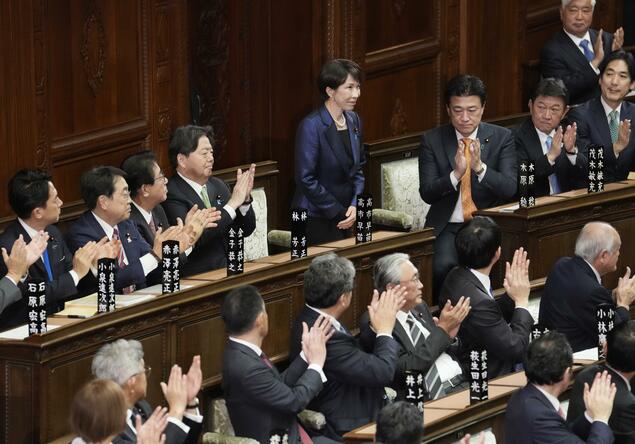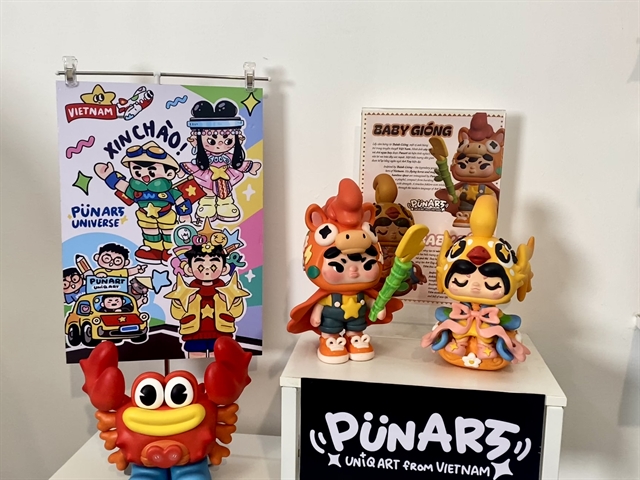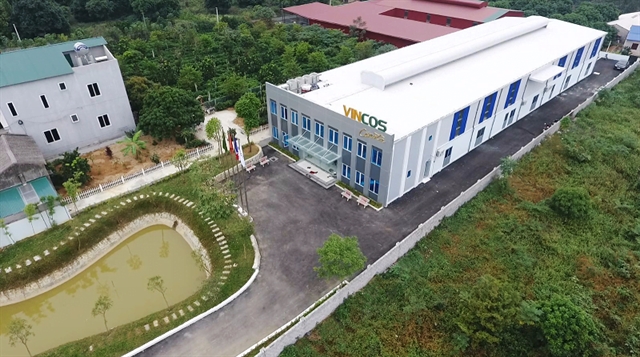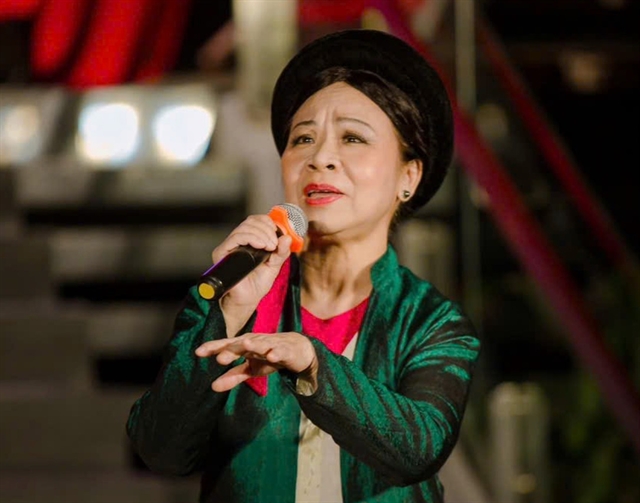 Inner Sanctum
Inner Sanctum

Hải Phòng-based Mai Văn Phấn is the tenth poet from East Asia to win the prestigious Cikada Prize, awarded by the Swedish Institute. Lê Hương chatted with Phấn
about the passion that drives his work.
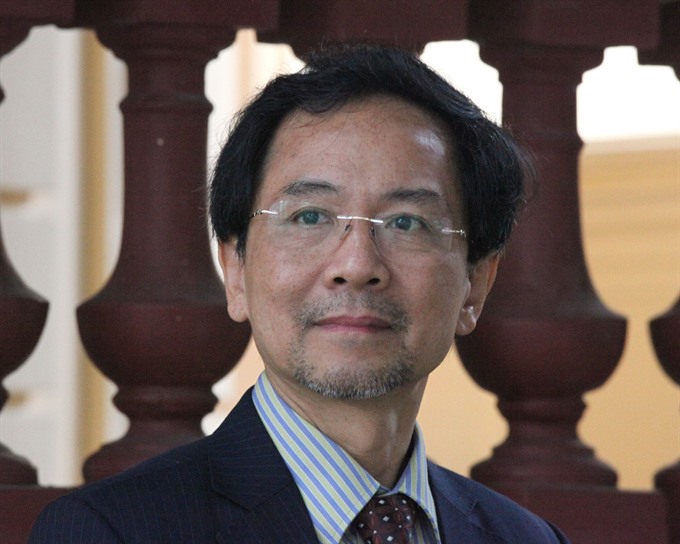 |
| Poet Mai Văn Phấn. Photo Courtesy of the poet |
Hải Phòng-based Mai Văn Phấn is the tenth poet from East Asia to win the prestigious Cikada Prize, awarded by the Swedish Institute. Lê Hương chatted with Phấn about the passion that drives his work.
Inner Sanctum: Please tell us what you felt upon hearing the news.
I was extremely surprised and happy to receive an email from poet Las Vargo, chairman of Cikada Prize’s jury.
Before this, I had never imagined to be in such a special poetry space, where my strong traditional identity and personal characteristics could attract foreign readers, especially the learned judges residing on the other side of the world.
They are really amazing readers, living in a different culture and geo-political society, which is home to the prestigious Nobel Prize and to great poets who are pillars of world poetry, such as Artur Lundkvist (1906-1991), Gunnar Ekelof (1907-1968), Edith Sodergran (1892-1923) and Hari Martinson (1904-1978), as well as Tomas Transtromer (1931-2015) and other contemporary names.
I feel happy and more confident with the renewal process and the role of Vietnamese poetry in the world.
From the previous winners of the prize, I have read poems by Ko Un from South Korea (who won the prize in 2006), Shin Kyong-Rim from South Korea (2007), Bei Dao from China (2014), and Việt Nam’s Hoàng Thị Ý Nhi (2015). They have different styles but share a common feature – which is that their starting and returning points converge in silence. In a wider concept, the silence is the meeting point, the door leading the readers to a spiritual world that western poets do not easily possess. For example, in Bei Dao’s poems, his poetic language always explodes fiercely. Yet, the readers can still sense the tranquility and transparency in his poetry. Or the loneliness that emerges in Ko Un’s poems, as still as a flaming torch in the absence of any wind; its light spreading further and further into the quiet.
Inner Sanctum: How did you get introduced to poetry? Please tell us about your published collections.
I started to write poems as a teenager and realised I was writing when I was 20. Then, although I stopped writing, I spent time collecting information on domestic and international literature. At 37, I was impressed with society at the time and I began experiencing basic changes in my awareness, idea and aesthetics, and so I started to write again. At that time, I wrote what came naturally to me. Gradually I modified my style and introduced a sense of professionalism in my creations.
So far, I have published 14 poetry collections and a collection of critical essays in Việt Nam. Besides this, I have 12 collections translated into various languages, published overseas and sold on Amazon, including Firmament without Roof Cover, Seeds of Night & Day, Out of the Dark and Vowels in the Dew, as well as Hidden Face Flower and The Flower of Mount Yên Tử.
My poems have been translated into 24 languages.
Inner Sanctum: What message do you impart through your poems? What is your writing principle? What is your inspiration?
My poetry has moved from the traditional style to a renewed style and attained a unique modern Vietnamese style. I have written in all forms available, so far, and also tried my own creative style, such as poems in prose form and poems with three sentences.
Although I write in any form on any topic, my aim is to present the beauty of poetry to the readers. Topics and feelings are essential factors but are ranked after aesthetics.
My creative philosophy aims to establish an aesthetic world, a separate poetry world, in which every appearance and movement follows my rule. That special world attracts me like a beacon and inspires me to write.
Inner sanctum: How do you connect with foreign poets? What do you think about introducing Vietnamese poetry to the world?
I have retired for over a year now and spent all my time on poetry. I have many friends who are poets living in other countries. Since my collections are published in English and French overseas and sold on Amazon, many writers and translators have contacted me to exchange and translate my poems into their mother tongues.
The Việt Nam Writers’ Association has organised various events such as the International Poetry Festival and some conferences to promote Vietnamese literature. However, it does not seem to have concrete plans for translating works. I have had my poems translated and published overseas with my own reputation (not with the help of the association). Because of the high quality of the English and French versions of my collections, they have been translated into other languages without altering much of the original meaning.
Inner Sanctum: What do you think about today’s Vietnamese poetry? Who do you like most?
Since the đổi mới (renewal) in 1986, Vietnamese poetry has surged ahead. There have emerged two waves in terms of a change in Vietnamese poetry, which I wrote about in one of my critical books titled Another Space. I have mentioned some writers in that book, including Nguyễn Quang Thiều, Nguyễn Lương Ngọc, Dương Kiều Minh and Trần Tiến Dũng. Talking about foreign writers, I like reading “great names”. I always admire and learn much from them, but I do not let their influence become a burden. I infatuate about them, but I’m aware enough to learn from their strong points and see the differences between me and them.
Inner Sanctum: After receiving this prize, do you have any plan to change the way you present your poetry to the world? Will you help other Vietnamese poets approach foreign readers?
I always respect all the awards I receive or any comments on my poems, both pros and cons. I consider every judgement a source of public opinion. All sources of public opinion are capable of stimulating creativity without affecting my own creative nature.
I’m at a stage where I can write fast and easily. I’m willing to introduce poems by Vietnamese poets to the world, provided that their translated versions are of high quality, which means they have the exact soul of the original version.
I have read some poems by Vietnamese writers translated into English. Translators tended to literally translate words by words, without caring about the soul of the poem. I know it’s difficult to find translators who understand poems.
Inner Sanctum: Could you tell me about your life?
- My wife is a teacher of Russian and English at a secondary school in Hải Phòng. We live in Hải Phòng. My two daughters completed their Master degrees overseas. So I have three English teachers at home. I like drinking coffee every morning, which make it easier for me to write. I have some favourite foods, of which sweet potato dipped with honey is my most favourite. — VNS

